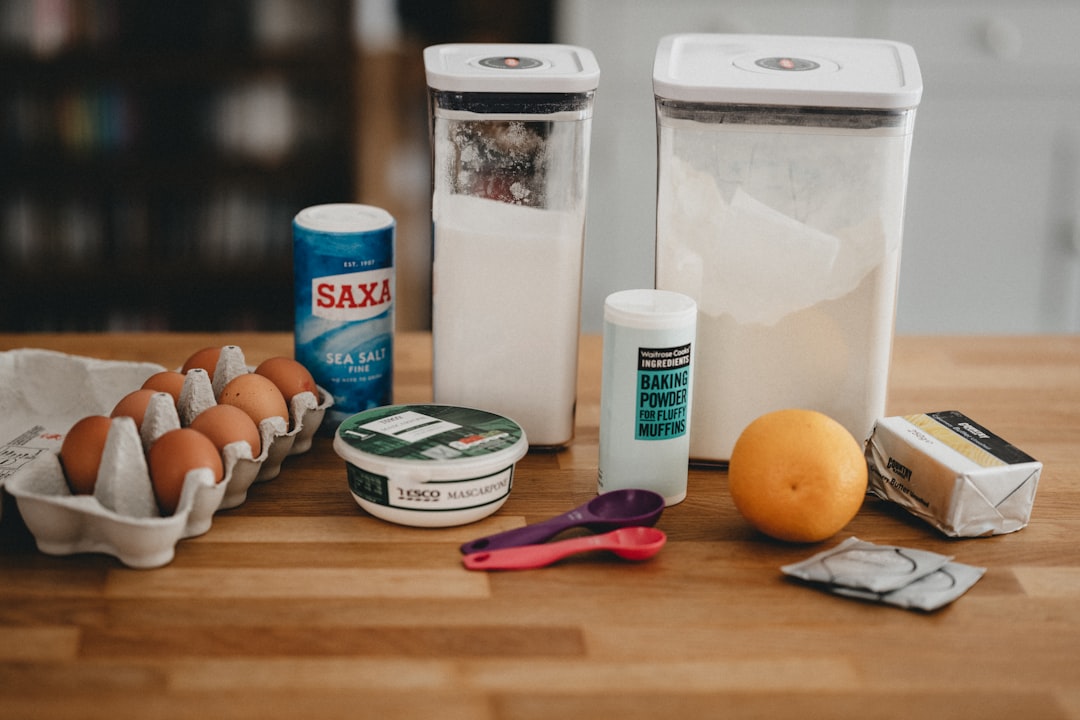Sugar Fuels Inflammation: The Hidden Saboteur of Health and Mental Clarity
Sugar fuels inflammation in ways that go far beyond the occasional indulgence or sweet treat. It’s not just about empty calories or weight gain; it’s about the insidious effects that sugar has on the body’s intricate systems, sowing the seeds of chronic inflammation and disrupting mental clarity. Beneath its seductive sweetness lies a biochemical chain reaction that can erode your health, fuel pain, and cloud your mind without you even realizing it.

Inflammation is a natural defense mechanism, designed to protect and heal. But when sugar overstimulates this process, it transforms into a destructive force that wreaks havoc on joints, digestion, and even the brain. Over time, this hidden inflammation becomes a silent driver of disease and diminished cognitive function, often manifesting as brain fog, mood swings, or lingering fatigue.
The connection between sugar and inflammation isn’t just a theory; it’s a reality grounded in science and felt in everyday life. This exploration uncovers the hidden ways sugar sabotages your body and mind, while offering a roadmap to break free from its grasp and reclaim your health.
A Silent Spark: How Sugar Fuels Inflammation in Your Body
Sugar fuels inflammation by igniting a series of biochemical reactions in your body. Excess sugar, particularly from processed foods, leads to elevated glucose levels in the bloodstream. This triggers an immune response that activates pro-inflammatory cytokines. These molecules, while essential for healing in small doses, become harmful when persistently overproduced due to high sugar intake.
Chronic exposure to these inflammatory markers creates a state of low-grade inflammation. Unlike the swelling you might see with an injury, this inflammation is internal and often undetected. Over time, it wears down tissues, damages blood vessels, and contributes to systemic stress on the body.
Another way sugar fuels inflammation is through the formation of advanced glycation end products, or AGEs. When sugar molecules attach to proteins or fats, AGEs are produced. These compounds disrupt normal cellular function and trigger oxidative stress, a key driver of chronic inflammation. The damage caused by AGEs extends to your skin, joints, and even your brain, highlighting their widespread impact.
How Persistent Inflammation Harms Your Health
Chronic inflammation fueled by sugar doesn’t stay confined to one area of the body. It is a systemic issue that underpins various diseases. Conditions like arthritis, heart disease, and diabetes are directly linked to this persistent inflammatory state. Even your immune system becomes compromised, leaving you vulnerable to infections and slower recovery.
Sugar fuels inflammation in a way that may feel invisible at first but becomes undeniable as symptoms accumulate. This silent spark of inflammation is a key reason to rethink sugar's role in your daily diet.
The Glycemic Surge: How Sugar Fuels Inflammation and Destabilizes Your Body
Sugar fuels inflammation by causing sharp spikes in blood glucose levels after consumption. These spikes force your pancreas to produce excessive insulin. Over time, this repeated demand for insulin leads to insulin resistance, a condition where your cells stop responding effectively. The result is lingering high blood sugar, which continuously triggers inflammatory responses throughout your body.
When your blood sugar remains elevated, your body perceives it as a threat. Inflammation becomes a chronic state as immune cells work overtime to counteract the damage. This process quietly degrades tissues and organs, laying the groundwork for long-term health issues.
The Insulin Rollercoaster: A Cycle of Damage
Excess sugar sets off a dangerous metabolic cycle. Blood sugar spikes are followed by rapid crashes, leaving you fatigued and craving more sugar. Each time this cycle repeats, the inflammatory response grows stronger. Sugar fuels inflammation by keeping your system in a constant state of stress, disrupting hormonal balance and metabolic stability.
This rollercoaster destabilizes your body's ability to regulate itself, compounding the harm over time. Inflammatory signals spread through your system, affecting everything from your joints to your brain. The more sugar you consume, the harder your body must work to recover, often failing to fully repair itself.
Low-Grade Inflammation: The Hidden Cost of Glycemic Surges
Repeated sugar-induced insulin spikes lead to persistent low-grade inflammation, an underlying cause of many chronic illnesses. This type of inflammation is subtle but damaging. It disrupts vascular health, contributes to insulin resistance, and accelerates the aging process. Sugar fuels inflammation in this way, creating a ripple effect that impacts your overall vitality and mental clarity.
By destabilizing blood sugar levels, sugar doesn’t just affect energy; it undermines your body’s foundational systems. This glycemic surge perpetuates inflammation and ultimately erodes long-term health. Recognizing this connection is the first step to breaking the cycle and reclaiming balance.
Hidden Sources of Harm: How Sugar Fuels Inflammation Without You Knowing
Sugar fuels inflammation in ways that are often hidden, even in seemingly healthy choices. Many processed foods labeled as low-fat or diet-friendly are packed with added sugars. These hidden sugars create a false sense of healthfulness while quietly triggering inflammatory responses in the body. Even sauces, condiments, and breads can contain significant amounts of sugar, fueling inflammation with every meal.

When you consume these products, your blood sugar spikes, leading to insulin surges and triggering chronic inflammation over time. The cumulative effect of these hidden sugars compounds daily, putting your body under constant metabolic stress.
Beverages: The Silent Culprits of Chronic Inflammation
Sugary beverages are one of the most insidious ways sugar fuels inflammation. Soft drinks, flavored coffees, and even fruit juices can carry alarming amounts of sugar. These liquid calories are rapidly absorbed, causing dramatic glucose spikes that overwhelm your system. Over time, the inflammatory effects of sugary drinks can contribute to obesity, diabetes, and cardiovascular issues.
Even beverages marketed as natural or healthy often hide high sugar content. Smoothies and sports drinks may seem beneficial but can deliver enough sugar to perpetuate inflammation. Consuming these regularly makes it nearly impossible for your body to maintain balance.
How Processed Foods Keep Inflammation Active
Sugar fuels inflammation most aggressively when combined with refined carbohydrates and unhealthy fats in processed foods. This combination creates a perfect storm of high glycemic impact and oxidative stress. Fast food, baked goods, and snacks are particularly problematic, driving inflammation through repeated consumption.
These foods not only provide hidden sugar but also lack the fiber and nutrients needed to mitigate its effects. The result is a sustained inflammatory response that wears down your body’s defenses. Recognizing these hidden sources of sugar is essential to reducing inflammation and protecting your health.
Sugar Fuels Inflammation: A Root Cause of Pain and Discomfort
Sugar fuels inflammation that directly contributes to physical pain and discomfort. Chronic inflammation caused by sugar affects joints, muscles, and connective tissues. Over time, this inflammatory state amplifies conditions like arthritis, leading to stiffness and swelling. Even in those without diagnosed conditions, inflammation from sugar can manifest as persistent aches or unexplained fatigue.
As sugar continues to fuel inflammation, your body’s natural repair mechanisms struggle to keep up. This creates a cycle of damage and slow recovery, leaving you feeling perpetually worn down. Addressing sugar intake is key to reducing this inflammatory burden and alleviating physical discomfort.
Digestive Health: Another Victim of Chronic Inflammation
Sugar fuels inflammation in the digestive tract, disrupting the delicate balance of gut bacteria. Excess sugar encourages the growth of harmful microbes, which weaken the intestinal lining and increase permeability. This condition, often referred to as “leaky gut,” allows toxins to enter the bloodstream, triggering widespread inflammatory responses.
The effects are far-reaching, impacting not just digestion but also overall health. Symptoms like bloating, cramps, and irregularity are often linked to sugar-induced inflammation in the gut. By reducing sugar intake, you give your digestive system a chance to heal and restore balance.
Autoimmune Disorders and the Role of Sugar
Autoimmune conditions often worsen when sugar fuels inflammation. Chronic inflammation can confuse the immune system, causing it to attack healthy cells. Diseases like lupus, rheumatoid arthritis, and Hashimoto’s thyroiditis can flare when sugar consumption remains unchecked. Eliminating or significantly reducing sugar intake can help calm these inflammatory responses and improve symptom management.
Understanding how sugar fuels inflammation and manifests as pain is vital for reclaiming physical comfort and overall wellness. Taking control of your diet can reduce inflammation and pave the way for long-term relief.
Mind Under Siege: How Sugar Fuels Inflammation and Impacts Mental Clarity
The Brain on Inflammation: Fog and Fatigue
Sugar fuels inflammation in the brain, leading to cognitive challenges like brain fog and chronic mental fatigue. Inflammation disrupts communication between neurons, slowing down critical processes required for clear thinking. When sugar consistently drives inflammation, this impairment worsens, making it harder to focus or retain information.
As the inflammatory response intensifies, the body produces stress hormones that further disrupt mental balance. Over time, this combination of inflammation and hormonal imbalance takes a toll on mental sharpness and overall productivity.
Mood Swings and Emotional Turmoil from Sugar-Driven Inflammation
Sugar fuels inflammation in ways that can destabilize emotional well-being. Chronic inflammation disrupts neurotransmitter production, leading to mood swings and feelings of anxiety or depression. Excess sugar also causes rapid fluctuations in blood sugar levels, which contribute to irritability and energy crashes.
These effects are not merely temporary. The prolonged impact of sugar-induced inflammation can impair emotional regulation, deepening feelings of unease and disconnection. Cutting back on sugar allows the brain to function more steadily, supporting emotional resilience.
The Brain-Gut Axis: Where Inflammation Begins
The connection between the gut and brain reveals another way sugar fuels inflammation. An inflamed gut can release harmful substances into the bloodstream, which travel to the brain. This gut-brain interaction exacerbates neurological inflammation, impairing mental clarity and emotional stability.
Studies show that reducing sugar intake supports gut health and reduces brain inflammation. This leads to clearer thinking and improved mood. By addressing sugar's role in this process, you can regain control over your mental clarity and emotional well-being.
Understanding how sugar fuels inflammation in the brain is essential for breaking free from its cognitive and emotional effects. Making deliberate dietary changes can unlock a sharper, more balanced mind.
The Addiction Dilemma: Why Sugar Fuels Inflammation and Feels Impossible to Quit
Sugar fuels inflammation while simultaneously hijacking the brain’s reward system. Each bite of sugar triggers a surge of dopamine, the brain’s pleasure chemical. Over time, this creates a powerful cycle of cravings and dependence. The more sugar consumed, the stronger the cravings, making it difficult to stop despite its harmful effects.
This addictive response encourages overconsumption, which perpetuates the inflammatory cycle. As sugar fuels inflammation in the body, the brain becomes trapped in a feedback loop of short-term pleasure and long-term damage. Breaking free requires disrupting this neurological cycle.
Cravings and the Biochemical Drivers of Dependence
When sugar fuels inflammation, it also alters key hormonal signals related to hunger and satisfaction. Elevated insulin levels triggered by sugar consumption can suppress leptin, the hormone that signals fullness. This leads to overeating and the continued intake of sugar, worsening the inflammatory response.
The resulting cravings feel insurmountable, as both the brain and body demand more sugar to maintain a sense of balance. This constant intake only deepens the impact of inflammation, making it harder to regain control over your diet.
The Emotional Comfort of Sugar and Its Inflammatory Toll
Sugar fuels inflammation, yet it often feels like a source of emotional comfort. Sweet foods are frequently used as a coping mechanism for stress or sadness. This emotional reliance on sugar intensifies its addictive nature and perpetuates chronic inflammation.
Addressing this dependency involves recognizing the emotional triggers that drive sugar consumption. By replacing sugar with healthier coping strategies, you can break free from the addictive cycle while reducing inflammation.
Understanding why sugar feels impossible to quit is the first step toward reclaiming control. Recognizing how sugar fuels inflammation can motivate change and inspire healthier choices.
Breaking the Cycle: How Diet Can Turn Down the Heat on Sugar-Fueled Inflammation
When sugar fuels inflammation, the body struggles to regain balance. The key to breaking this cycle is a shift towards whole, nutrient-dense foods. Whole foods like leafy greens, fatty fish, and colorful vegetables contain antioxidants and anti-inflammatory compounds that can combat the damage caused by sugar.

By choosing these natural, unprocessed foods, you provide your body with the necessary tools to heal. These foods help stabilize blood sugar levels and prevent further inflammation, allowing the body to repair itself and reduce the need for inflammatory responses.
Healthy fats, such as those found in avocados, nuts, and olive oil, are another powerful way to counteract the impact of sugar. These fats not only nourish the body but also reduce inflammation, providing relief from the chronic pain and discomfort sugar can cause. By incorporating these fats into your diet, you can help restore balance and lower the inflammatory effects of excess sugar.
How Fiber Helps Stabilize Blood Sugar and Diminish Inflammation
Fiber-rich foods such as whole grains, legumes, and vegetables play a crucial role in managing sugar-induced inflammation. These foods slow the absorption of sugar into the bloodstream, helping to prevent the blood sugar spikes that fuel inflammation.
A high-fiber diet also supports gut health, reducing the risk of leaky gut syndrome and its associated inflammatory responses. By embracing fiber, you can take proactive steps to manage inflammation and stabilize your body’s reaction to sugar.
Hydration and Inflammation: Water’s Role in Detoxification
Sugar fuels inflammation, but hydration is key in combating this. Proper hydration helps flush toxins from the body, reducing the burden on the immune system. Drinking water throughout the day supports the body’s detoxification processes, clearing away the byproducts of inflammation and encouraging a state of balance.
Making these dietary shifts can help manage the harmful effects of sugar and reduce the chronic inflammation it causes. By committing to a whole-foods-based approach, you empower your body to regain control, putting you back on the path to optimal health.
A Sweet Trade-Off: How Reducing Sugar Enhances Mental Sharpness
Sugar fuels inflammation, which directly impacts brain function and mental clarity. When sugar is reduced or eliminated from the diet, the brain can regain its sharpness. By stabilizing blood sugar levels, you minimize the inflammatory responses that cloud cognitive abilities, allowing for clearer thinking and better memory retention.
The mental fog associated with sugar consumption often dissipates once sugar intake is controlled. The brain no longer battles the inflammatory effects of excess glucose, and in return, cognitive function improves. This shift leads to enhanced focus, quicker problem-solving, and a greater ability to process information efficiently.
Improved Mood and Emotional Balance Through Reduced Inflammation
Sugar fuels inflammation not only in the body but in the brain as well. Cutting back on sugar helps reduce emotional instability linked to sugar-induced inflammation. As inflammatory responses decrease, the brain’s neurotransmitter production stabilizes, supporting better mood regulation and emotional clarity.
By reducing sugar, many individuals experience fewer mood swings and greater emotional resilience. The effects on mental clarity are not limited to cognitive tasks; emotional balance becomes more achievable, making day-to-day life easier to navigate.
Long-Term Brain Health: Protecting Your Mind from Chronic Inflammation
Chronic inflammation fueled by sugar accelerates the aging process of the brain. Reducing sugar intake can significantly protect your long-term brain health, slowing cognitive decline and preventing conditions like Alzheimer’s and dementia. By focusing on a balanced diet with minimal sugar, you create an environment where your brain can thrive.
Making the decision to cut sugar is more than just an immediate fix. It is a powerful investment in your mental future, safeguarding clarity, focus, and overall cognitive function. By taking control of sugar’s impact on inflammation, you enhance both short-term mental performance and long-term brain health.
The Long Game: Redefining Your Relationship with Sweetness
Sugar fuels inflammation, but transforming your relationship with sweetness is the first step toward lasting health. Reducing sugar intake doesn’t have to be an all-or-nothing approach. By slowly cutting back on sugary foods and finding healthier alternatives, you can make a gradual transition that feels sustainable. Over time, your body will become less dependent on sugar, and inflammation will subside.
Taking small steps toward minimizing sugar consumption helps to reset your taste preferences, making naturally sweet foods like fruits more satisfying. This shift not only reduces inflammation but also allows your body to function optimally, free from the cycles of blood sugar spikes and crashes.
The Power of Consistency: Long-Term Benefits of Sugar Reduction
When sugar fuels inflammation over time, the effects are cumulative. By consistently reducing sugar intake, you give your body the chance to repair and thrive. The benefits of this commitment are not only immediate but also long-term. As inflammation decreases, your body and mind become more resilient, and you experience better health overall.
Consistency is key to breaking the cycle of sugar-induced inflammation. Even if results aren’t immediately visible, the changes you make now will pay off years down the line. By redefining your relationship with sugar, you give yourself the gift of long-lasting vitality and mental clarity.
Sustainability: Finding Balance Without Sacrificing Pleasure
The idea of living without sweetness can feel daunting, but it’s essential to remember that balance is possible. Sugar fuels inflammation, but it doesn’t mean a lifetime of deprivation. By finding healthier alternatives and allowing yourself occasional indulgences, you can enjoy the sweet things in life without the negative effects of excessive sugar.
Rebuilding your relationship with sugar is about finding harmony, not complete elimination. With conscious choices and a focus on nourishing foods, you can enjoy long-term health benefits while reducing inflammation and enhancing mental clarity.
